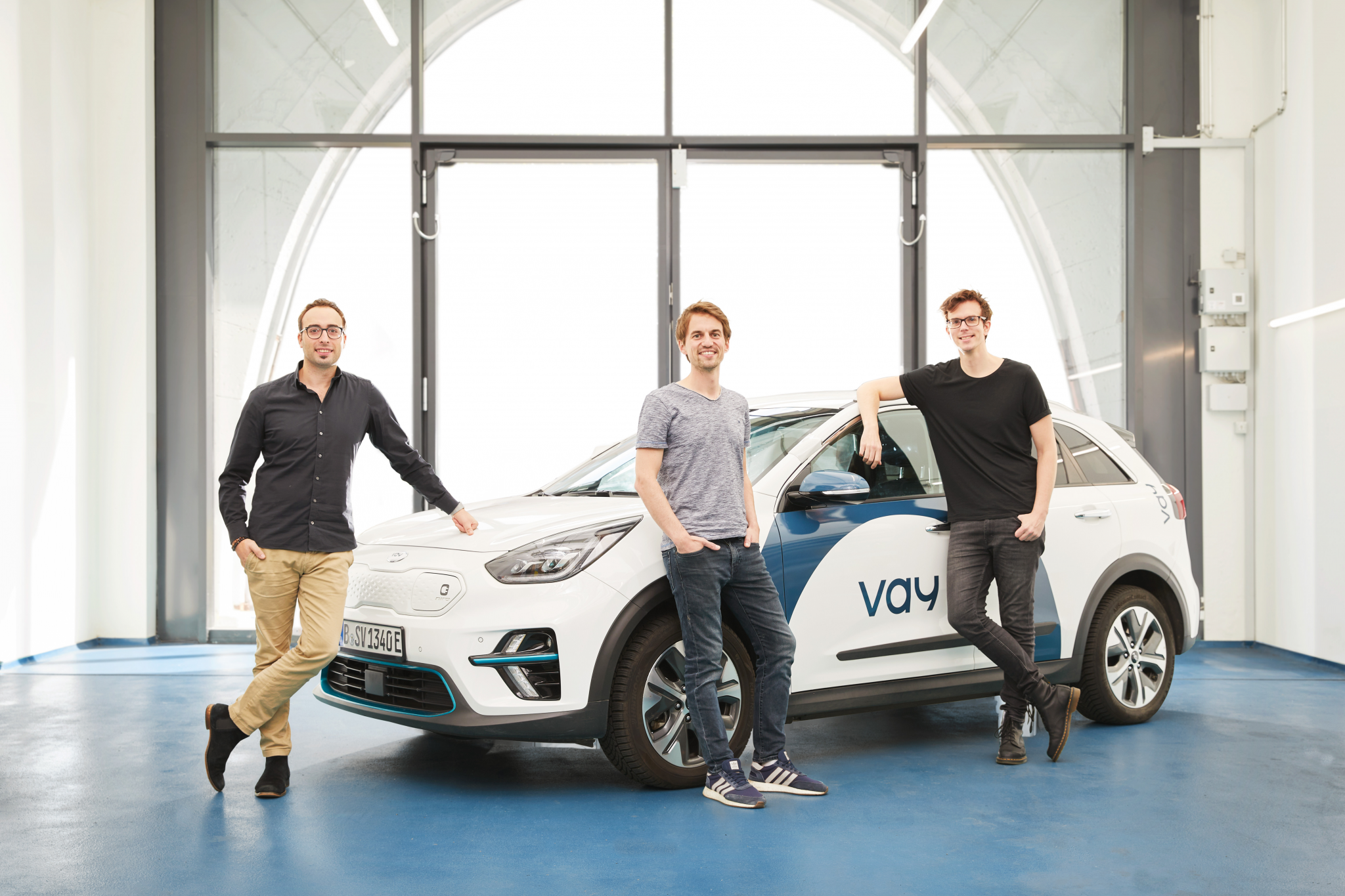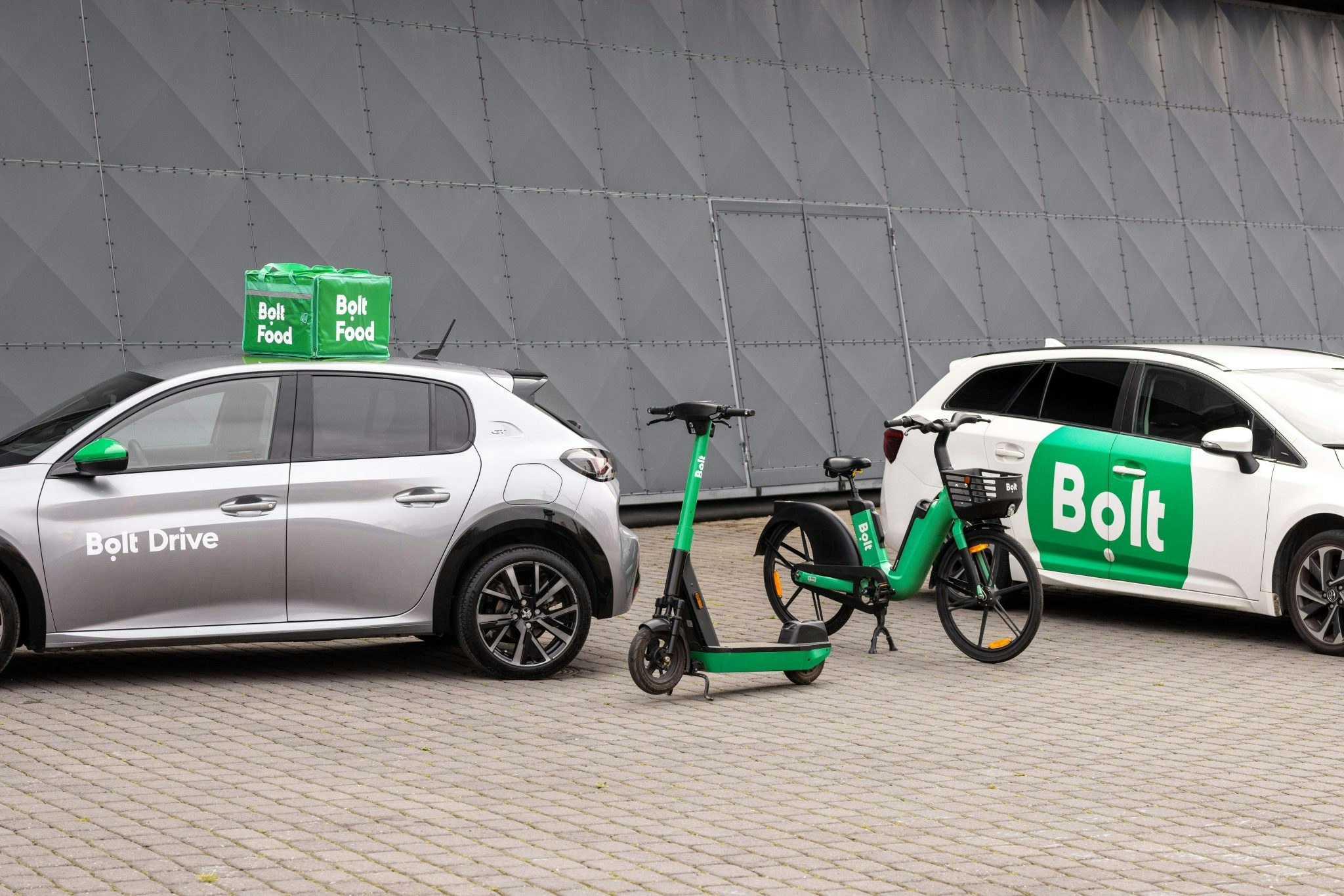The global e-bike movement has been steadily gathering momentum in the last five years — and now the market has stepped up several gears in the space of just a few months.
Last month Belgian e-bike maker Cowboy raised a $26m Series B funding round to accelerate its expansion in Europe amid tough competition from its main rival, the Dutch company VanMoof.
And now Eric Quidenus-Wahlforss and Alexander Ljung, former SoundCloud cofounders and Berlin startup celebrities, have teamed up with Christian Springub of website building platform Jimdo to launch a new e-bike subscription service.
Going by the name of Dance, the invite-only programme — which just launched in Berlin — is charging €59-a-month for use of an e-bike, including services such as delivery, maintenance and theft protection.
Subscribers selected from the waitlist will receive the fully-assembled bike on their doorstep, which they can unlock with the Dance app and ride straightaway.
Speaking to Sifted, the founders said that Berlin, and Germany more widely, is the best place for them to launch the service, especially as there has been “tremendous adoption” of e-bikes nationally.
“Bike-commuting in Berlin has been on the rise for the last ten years, and now, with the coronavirus, the trend has accelerated even more,” says CEO Quidenus-Wahlforss.
Recent statistics reflect this growing trend: according to GlobeNewswire, 45% of Germans are interested in owning an e-bike, and the European e-bike market is expected to double by 2025.
Government attitudes have also been “shifting worldwide in favour of bikes,” adds Quidenus-Wahlforss.
In Berlin, 22km of pop-up bike lanes have been introduced since Germany’s lockdown in mid-March, and another 30–50km are expected to follow by the end of the year.
Other bike companies are spotting an opportunity as well: UK folding bike company Brompton, which builds 55,000 bikes a year in the London suburb of Greenford, is preparing for a big push into Germany hoping to capitalise on this same German biking trend.
From music-streaming to mobility
The SoundCloud founders’ shift from music-streaming to e-bikes wasn’t entirely random.
Quidenus-Wahlforss says that he’s been engaged in the climate change debate for the last five years, and was an “early adopter” of mobility solutions such as bike-sharing, electric skateboards and scooters.
Stepping down from his operational role at SoundCloud also provided a window of opportunity for him to start something new. “I wanted to focus on what was next, and to launch a venture that could make a real impact in the mobility space,” adds Quidenus-Wahlforss.
A long walk with an old friend in his hometown of Stockholm was the turning point for the CEO.
After discussing society’s shift from owning to renting — something the SoundCloud founders witnessed first-hand in the music industry in the 2000s, and capitalised on with their subscription service — Quidenus-Wahlforss started thinking about creating a similar model for e-bikes. After that, Ljung — who is now Dance’s chairman — came on board.
“I then, by chance, met Christian Springub who had the same idea as us, but had arrived at it from a different angle,” says Quidenus-Wahlforss. “He’d been looking at developing a bike repair service, and he was also very passionate about getting cars out of cities.” So, the three got together and began focusing on something that could pull all of these threads together.
Sweating the competition?
Berlin has become a playground for new mobility solutions in recent years and Quidenus-Wahlforss says that some verticals, such as bike-sharing and e-scooters, “are quite noisy.”
This doesn’t mean that these current solutions are effective, however. Vehicles offered by bike-sharing services are poorly maintained, expensive to run, and hard to track down in busy city centres, explains Quidenus-Wahlforss.
“Then you’re just left with buying a bike of your own, but electric bikes in particular are pretty expensive,” he continues.
Dance thinks that its all-inclusive subscription service could form a “meaningful third option” for consumers in the mobility space — especially as there are “few other players” with a similar offering.
The company could still be facing competition, however. Berlin-based startup Grover has just launched its own e-scooter subscription service, and Dutch company Swapfiets entered the Berlin market in July with a new range of subscription e-bikes.
Meanwhile, Pony in Paris has been trying out a so-called ‘decentralised ownership’ model, where users can buy a bike or scooter that can be rented out to other people via its app. The company claims that the model allows users to feel a sense of belonging over the vehicles. As a result, people generally treat them better.
So, how will Dance stand out from the crowd?
“[Our USP] is the all-inclusive package: the software, hardware and service aspects,” explains Quidenus-Wahlforss. “We’re designing this experience with a holistic view based on what we think e-bikers need and will enjoy.”
Community at its core
Being part of a community of e-bikers is one of the major benefits of Dance’s service, according to the founders.
Ljung and Quidenus-Wahlforss have been working on subscription services since SoundCloud launched in 2007 and they think that “building a movement” around shared passions is what they do best.
“There are many people who want their cities to be more liveable, and who really believe in reducing car-usage,” says Quidenus-Wahlforss, referring to people in cities like Amsterdam and Copenhagen, where over 60% of the population use bikes to commute to work or school.
“We think we have an opportunity to create a connected community with a strong stance on climate-related issues. It could be extremely powerful, if we nail it,” he adds.
Future plans
Creating a community within the company itself is also a priority for the founders. Dance is currently hiring for positions in software, hardware, finance and marketing. They’re also in the throes of deciding whether they’ll create a centralised team in Berlin, or continue with a fully remote workforce.
“I don’t think [the latter] really works for us right now,” explains Quidenus-Wahlforss. “Having flexible-work practices is essential, but we’d also love our team to congregate together in a physical office at least now and then.”
That’s if things go well for the company. Critics in Berlin’s startup scene say the mobility market is extremely competitive with razor-thin margins. As a result, many companies struggle to achieve profitability, and those that are making ends meet are floating on VC money.
In fact, one anonymous user on Reddit, who responded to a thread advertising Dance’s new e-bike offering, wrote: “All I see is a website with just a few renders of a bike, a whole lot of marketing talk, no technical details at all and some "famous" founders. Peak Berlin startup scene.”
Harsh words, perhaps, for a service that has only just launched, but Quidenus-Wahlforss is unphased by the naysayers.
“There’s a lot of things that determine whether an e-bike company will survive or not, so it’s hard to make a sweeping statement. What I will say is that I’m extremely positive about Dance’s future. We aspire to launch in other countries eventually, and make a real dent in the mobility space.”



